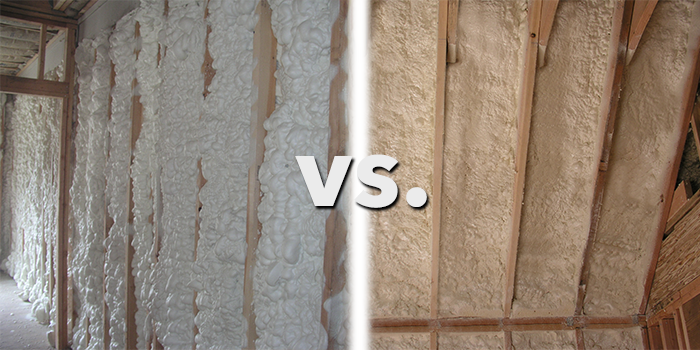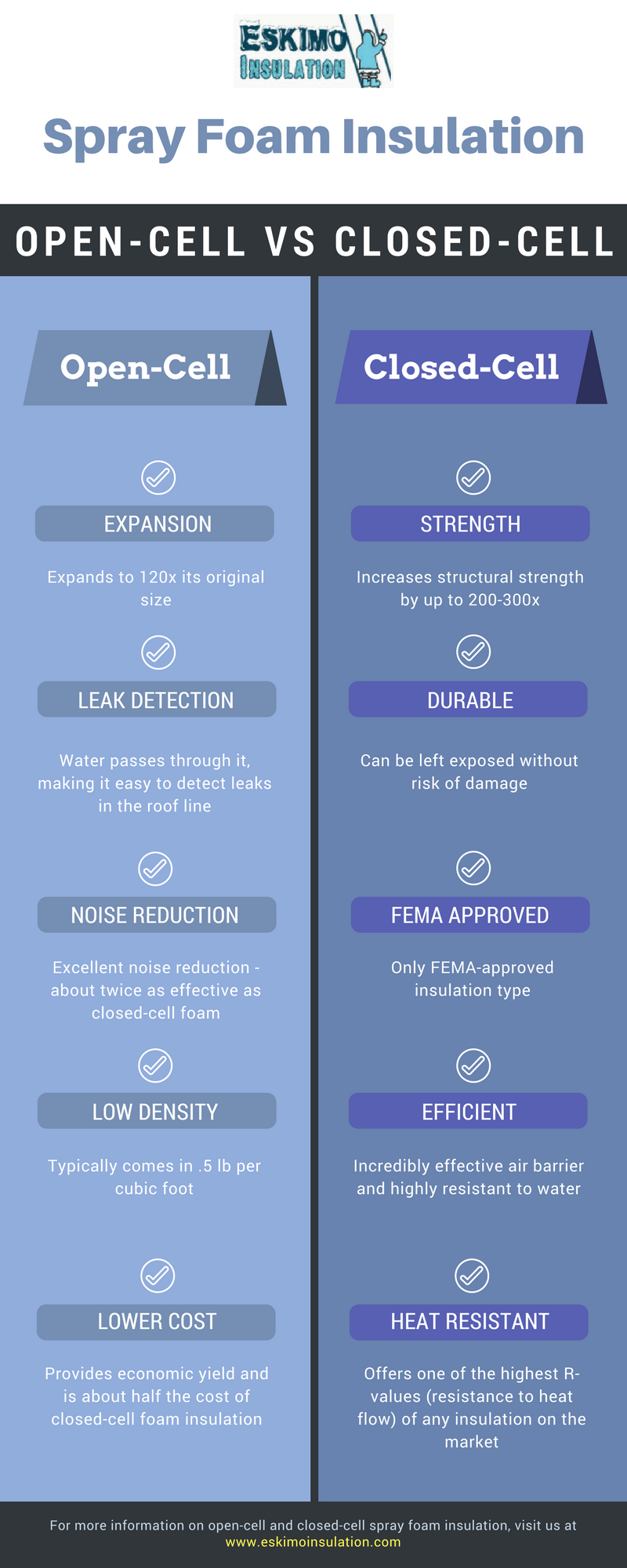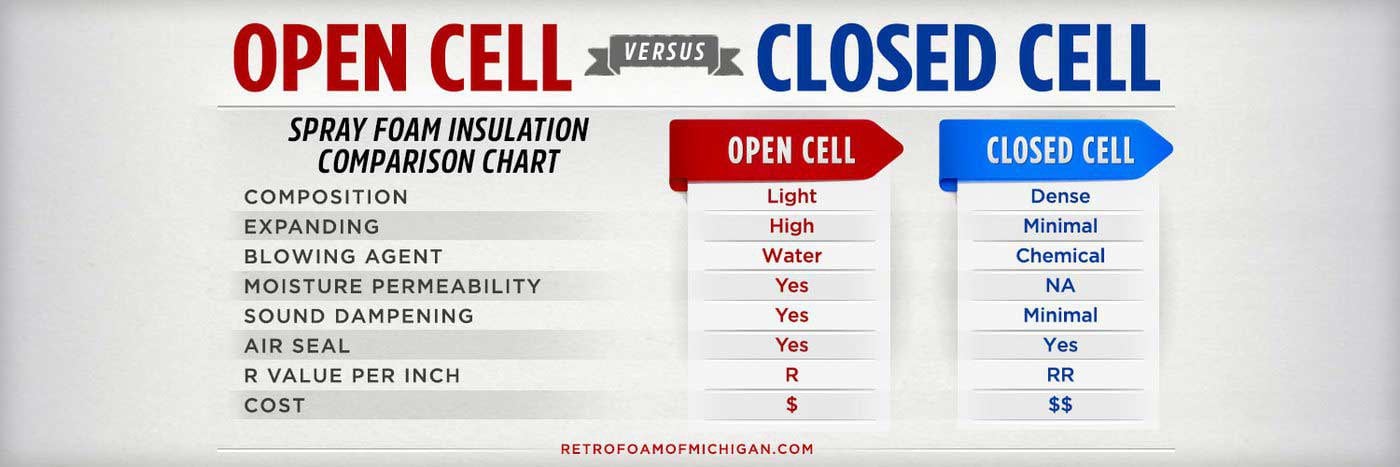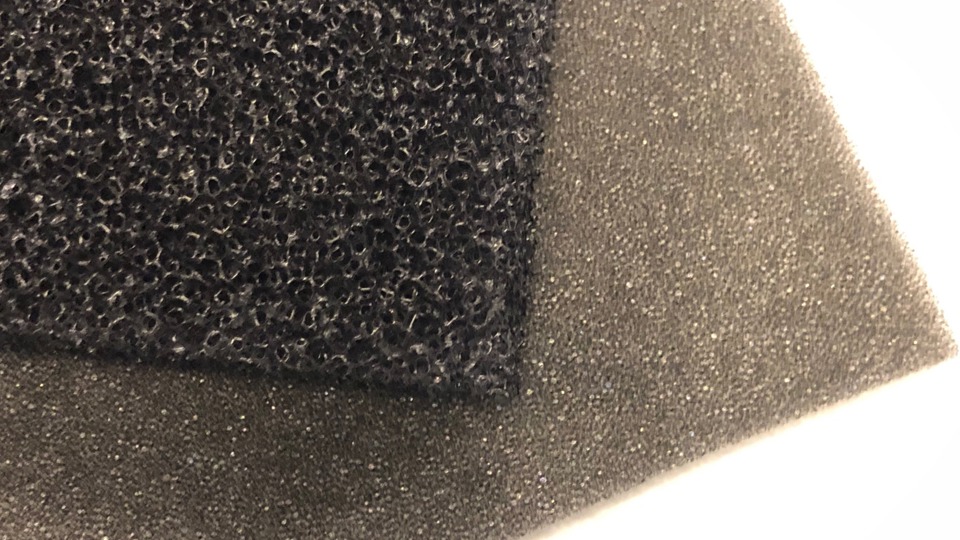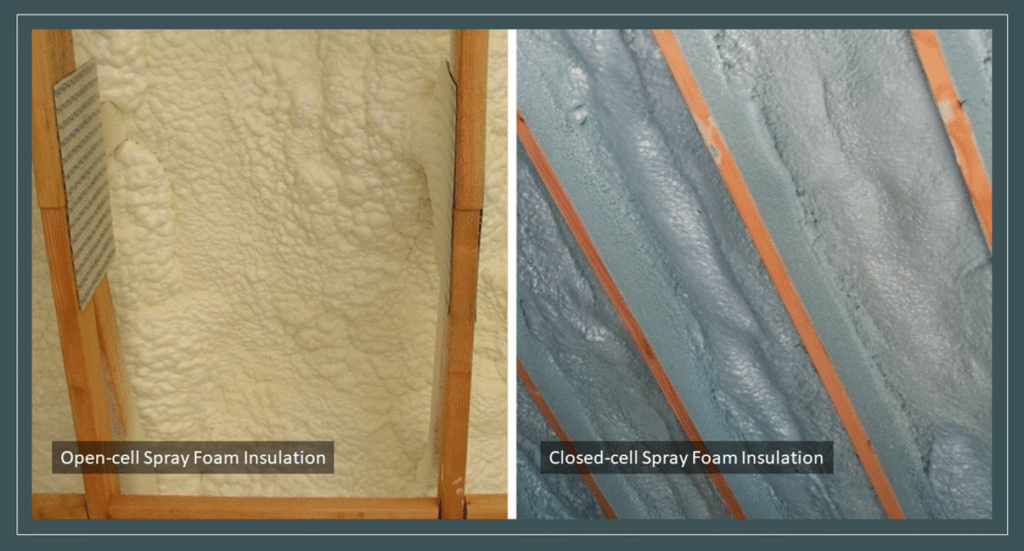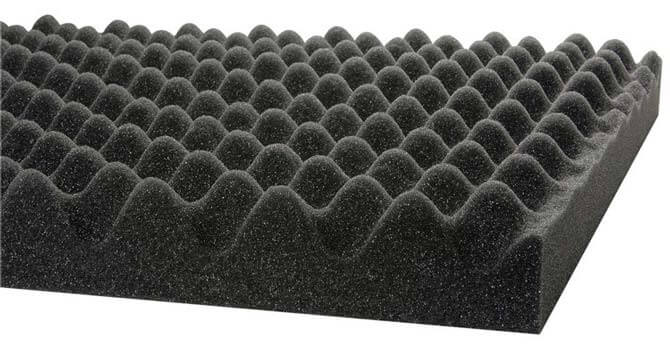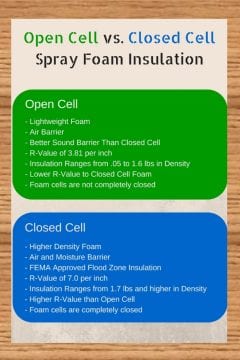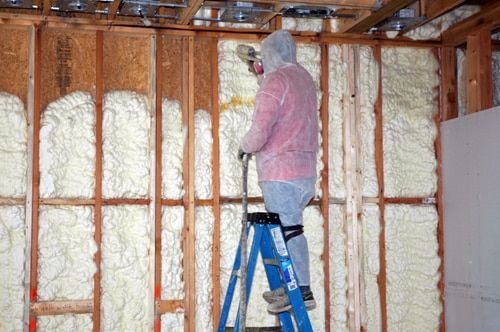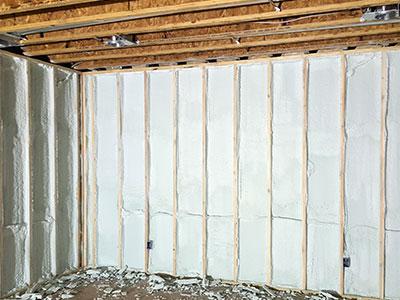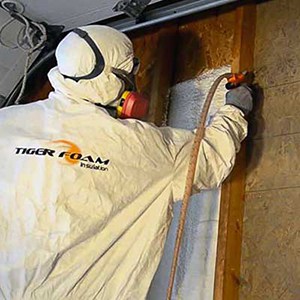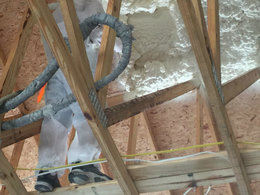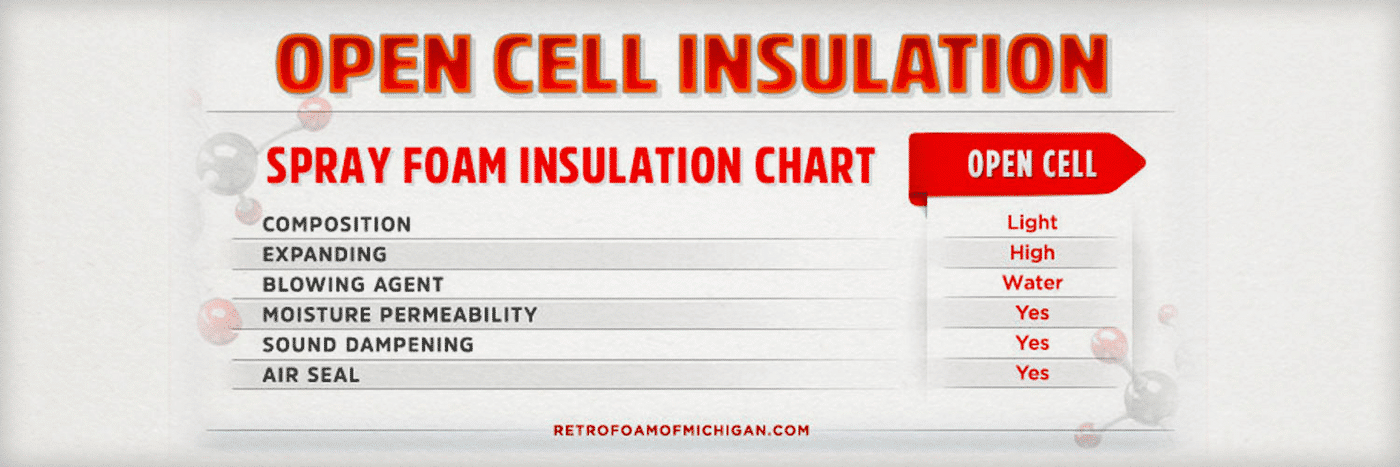Porous plastic foam is on the cutting edge of insulation for heat vapor noise and other elements the two major variants of porous plastic foams are open and closed cell foams.
Open cell vs closed cell foam insulation for sound.
Closed cell foam insulation.
All you need to do is use fish tape and.
Closed cell foam is roughly four times as dense as open cell for insulation applications.
Open cell foam insulation is lightweight pliable and easy to work with whereas closed cell foam is rigid and very dense.
Closed cell foam is much more expensive than open cell foam.
They have different strengths and weaknesses and one is not necessarily better than the other.
However both foams are air barriers and it is the air barrier that makes foam such an excellent insulation.
In density or even higher for certain applications.
Ft of foam material is weighed.
When adding insulation to a home during remodeling or new construction understanding the difference between open and closed cell foams can help determine which product is best for your application.
Closed cell foam is around 6 6 per inch as compared to 3 8 per inch in open cell.
When applied on the interior open cell spray insulation provides performance advantages that differ from those of closed cell spray foam used on the exterior.
Open cell vs closed cell spray foam composition.
Importance of knowing the difference between open cell vs closed cell spray foam insulation.
Open and closed cell foam are two different types of spray foam insulation.
Closed cell foam is a specific type of foam that boasts a higher r value than its open cell counterpart.
Closed cell foam has tightly woven cells that produce a closed effect.
Closed cell foam is made of uniform cells that maintain their own shape.
In density whereas closed cell ranges from 1 7 to 3 0 lb cu.
Now lets get to it.
Both closed cell spray foam and open cell spray foam insulation can be used effectively in commercial building designs to allow the building to achieve energy efficiency and consistent performance.
Closed cell foams which tend to be rigid are very poor sound absorbers and result in lower stc values.
Open cell foams should and do allow sound to penetrate the material providing absorption.
To ascertain foam density one cubic foot cu.
As a manufacturer of both fibrous insulation and foam we are aware of all the anecdotal claims and stories from the field about spray foam homes.
Because of this closed cell foam results in a denser material that works better at absorbing low frequency noise.
For example if you needed to run new wiring open cell spray foam is going to be much easier to work with because it is so pliable.
Both types of foam are used in everyday products but because of their structural differences one type of foam may perform better than the other depending on the desired application.
Closed cell foam.
It comes down to understanding the benefits of open cell vs closed cell foam and choosing the type that fits your needs.
If an installer was to install the incorrect cell type foam it could cause the insulation to work ineffectively.
Sound absorption through air movement.


